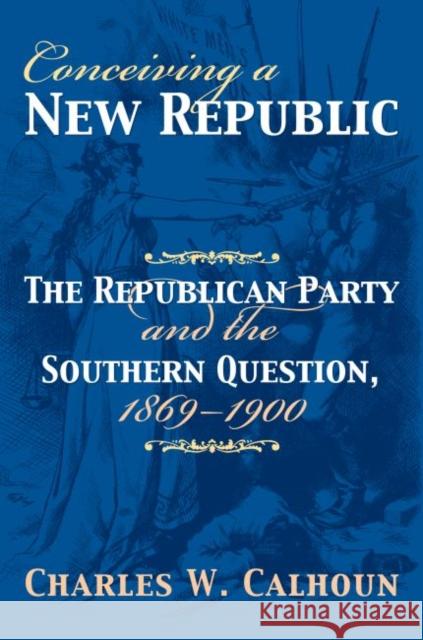Conceiving a New Republic: The Republican Party and the Southern Question, 1869-1900 » książka
topmenu
Conceiving a New Republic: The Republican Party and the Southern Question, 1869-1900
ISBN-13: 9780700614622 / Angielski / Twarda / 2006 / 358 str.
During the late nineteenth century, Republicans struggled to reinvent America in the wake of civil war-and were consumed by the question of how the South should fit within the reconstituted Union. But the unity that Republicans had shown during the war was far from evident in facing this new challenge.
Conceiving a New Republic examines the Republicans' ideological struggle, focusing on how party thought--particularly concerning the concept of republicanism--determined the contours of that effort and was in turn shaped by it. In relating how Republicans strove to fashion a new democratic polity in the face of fierce southern opposition, Charles Calhoun focuses on what they thought about their actions, particularly their beliefs about the meaning and nature of the American Republic. Calhoun revolutionizes our understanding of this era by showing that although it eventually failed in its lofty purpose, the party set out to reconstruct a nation that would abide by the promises of the Declaration of Independence. While earlier scholars have blamed Republicans for not being more steadfast advocates for blacks, Calhoun shows that southern Democrats so strongly resisted the breakdown of white supremacy that Republicans ultimately could not prevail. He assesses their actions in the election of 1876 and the ensuing electoral crisis less as an abandonment of black rights than as an effort to salvage as much of the republican experiment as possible. He also examines their struggle to revive the experiment with the Lodge Federal Elections bill of 1890-the last serious attempt at civil rights legislation until the 1950s. Offering new insights into Presidents Grant, Hayes, Harrison, and McKinley, Calhoun shows that even before the latter's administration had begun, a confluence of forces had conspired to defeat the Republicans' attempt to create a new Republic. He spells out the reasons why Republicans, defeated by southern and Democratic intransigence, ultimately abandoned the effort to remake the Republic and found ways to accommodate themselves intellectually and morally to the failure of their earlier ideals. In showing how Republican leaders envisioned nothing less than an essential reordering of the Republic, Conceiving a New Republic offers a bold reinterpretation of the Gilded Age that reflects a deep understanding of the period and its issues.










